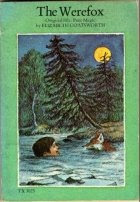22. Miss Hargreaves by Frank Baker
 Miss Hargreaves by Frank Baker (Canada) -(US)
Miss Hargreaves by Frank Baker (Canada) -(US)(The Bloomsbury Group)
Pages: 317
Ages: 18+
Finished: Feb. 8, 2010
First Published: 1940, (this US/Can Bloomsbury Group re-issue Dec. 2009)
Genre: British farce, fantasy
Rating: 4.5/5
First sentence:
When I wrote essays at school I was always told to begin at the beginning and end at the end.
Acquired: Received a review copy from Penguin Group (Canada).
Reason for Reading: I love British literature written during the first half of the 20th century and all the books reprinted in The Bloomsbury Group sound delightful.
Summary: Norman Huntley and his friend Henry are visiting an old church and while speaking to the keeper, on a lark, they invent an eighty-plus old woman, Miss Hargreaves, giving her quite an eccentric character, a cockatoo, and a bath she takes with her everywhere. Still having a good laugh they write a letter to this fictional character at the hotel where they've got her staying on her travels. The lark takes a downward spiral when they receive a reply back and shortly afterwards Miss Hargreaves arrives in the village complete with cockatoo and bath. She latches onto Norman like a dear, long lost friend and Norman's once sedate life as choir member, organist and bookstore helper turns upside down with the havoc created by the imaginary but very real Miss Hargreaves.
Comments: This book is simply put, a pure delight! Though written in 1940, the story is set sometime prior WWII and with an offhand remark about WWI we can surmise the story takes place in the 1920s or early 30s. The wonderful British village life filled with a variety of characters is a joyful story. Miss Hargreaves is a most eccentric character and her appearance turns the conventions of the town topsy-turvy. She descends upon Norman and completely takes over his life with her devotion. Creating episode after episode within the village and church community Baker's novel starts off as a hilarious farce. But when Norman can't take it anymore, close to losing his girlfriend, he tells Miss Hargreaves he's done with her and she can do as she like. This causes Miss H. to disappear for some weeks and Norman realizes that he's become a bit fond of the old girl. When Hargreaves returns she's not the woman she was before, she snubs Norman, puts on airs and her former escapades are completely forgotten as she becomes the new centre of the village's society.
Norman and Miss Hargreaves's relationship is a wonderful story. I often felt it compared to that of a parent and a child, with Norman taking the parental role since he 'created' Miss Hargreaves. Miss H. starts off as the doting child thinking Norman is the centre of her universe then after an argument she turns into the defiant teenager who ignores Norman and does what she wants. At this point Norman realizes the feelings he has for Miss H. are genuine and he loves her as a parent; he tries to make her see reason and is forever turned away, banging his head against a wall, and yet he keeps returning for more as his love is coupled with responsibility. While the story is filled with whimsy, there are also to be found great moments of pathos and the ending will tug at your heart strings.
Both Norman and Miss Hargreaves are astounding characters. While they appear to be at odds for the majority of the book, there are profound moments that they share together sometimes through speech and other times simply through a shared look. They are very compelling characters not soon to be forgotten. The secondary characters are also full of life from Norman's little sister Jim, who taunts him frequently, to the church's righteous Dean, who is a bit too full of himself, to Norman's scatterbrained bookstore owner father, to Henry, the one who helped Norman create Miss Hargreaves yet can't quite believe it isn't all some trick.
A delightful book, highly recommended to fans of British cozies. The author wrote fifteen novels and I certainly wouldn't mind trying another.


This is my favourite novel, and I suggested it to Bloomsbury for their reprint series, so I am delighted whenever I see a review of it. SO pleased you liked Miss H - she is wonderful.
ReplyDeleteSounds absolutely delightful - I'll be keeping my eyes peeled for a copy. Great review.
ReplyDelete